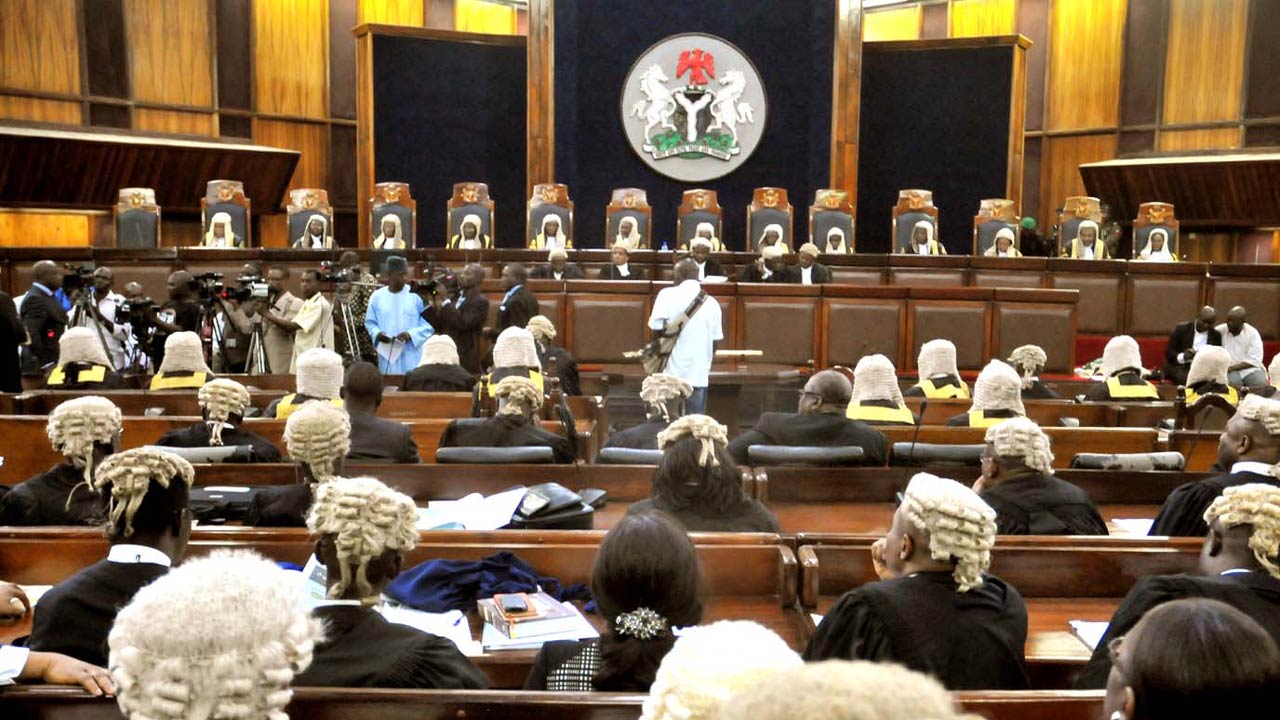
*Investigation shows drug industry undermining WHO plans for vaccine manufacture in Africa
Almost two years after the first case of COVID-19 was confirmed in Nigeria, February 27, 2020, the country’s local vaccine production plan, Biovaccine, is yet to take off despite the release of over N10 billion.
Also, more two years on, the company established by the Federal Government to ensure local manufacture of vaccines is still having teething problems. The Guardian investigation revealed that Nigeria would be able to achieve local vaccine production in the nearest future.
This is unlike South Africa, which reached a major milestone last week when her scientists reproduced Moderna’s COVID-19 vaccine.
However, the World Health Organisation (WHO), last Friday, announced Nigeria, Senegal, South Africa, Egypt, Kenya and Tunisia as the first six countries that will receive the technology needed to produce mRNA vaccines on the African continent. According to WHO, all countries applied and have been selected as recipients.
Chairman, Biovaccine Board, the company commissioned by the Federal Government for local production of vaccines in Nigeria, Prof. Oyewale Tomori, told journalists on Tuesday that the infusion of N10 billion is a “needed spanner to repair the wheel of vaccines production” in the country, but regretted that the 15-month delay in the release of the fund has become a “spanner thrown into the wheel of progress.”
He added that the N10 billion earmarked for local vaccine production should be released and in full.
“Nigeria being able to manufacture her own vaccines will make her better prepared to respond more effectively and adequately to future pandemics and to the COVID-19 pandemic that has continued to evolve,” he added.
The WHO has created a technology transfer hub in South Africa to produce and distribute COVID-19 vaccines, and vaccines for other diseases in the future, throughout the continent.
This is a response to the vast disparity in vaccine distribution between the Global North and the Global South.
However, a consultancy hired by the vaccine manufacturer BioNTech has been lobbying against the WHO’s venture.
Since June 2021, the WHO has been coordinating a messenger ribonucleic acid (mRNA) vaccine technology transfer hub in South Africa.
The hub is important because it will increase the availability of mRNA vaccines, including those for COVID-19, in Africa, which currently has access to very few vaccines, compared with areas of the Global North.
In a new investigation, the journal BMJ has revealed that a consultancy hired by the vaccine manufacturer BioNTech has attempted to undermine the new mRNA hub by lobbying the South African government against the venture.
Technology transfer hub
The WHO’s technology transfer hub aims to use publicly available information about Moderna’s mRNA COVID-19 vaccine to develop a similar vaccine that could be more cheaply and quickly distributed throughout Africa.
The hub is supported by the Africa Centres for Disease Control and Prevention, the Medicines Patent Pool, and the South Africa Medical Research Council. The vaccine would be manufactured by the South African companies Afrigen Biologics and the Biovac Institute.
Director General, WHO, Dr. Tedros Adhanom Ghebreyesus, said that the technology transfer hub “is great news, particularly for Africa, which has the least access to vaccines. COVID-19 has highlighted the importance of local production to address health emergencies, strengthen regional health security, and expand sustainable access to health products.”
However, the kENUP Foundation — a consultancy hired by the vaccine manufacturer BioNTech — was not as pleased as others about the WHO’s hub.
BMJ reported that the foundation visited South Africa from August 11–14, 2021, after which it sent the South African government a report.
The kENUP Foundation said: “The WHO Vaccine Technology Transfer Hub’s project of copying the manufacturing process of Moderna’s COVID-19 vaccine should be terminated immediately. This is to prevent damage to Afrigen, BioVac, and Moderna.
“Provided that the release from patent cover will be granted by Moderna only during the pandemic, the sustainability outlook for this project of the WHO Vaccine Technology Transfer Hub is not favourable.”
According to Prof. David Walwyn, at the University of Pretoria’s Graduate School of Technology Management, in South Africa, this reflects a broader strategy of BioNTech to protect its profit margin.
“The kENUP Foundation, which has close links to BioNTech — indeed, one could argue that it has been hired by BioNTech to enforce its patents worldwide and prevent other manufacturers from making mRNA vaccines — has been actively campaigning to stop the work of the vaccine hub in Cape Town. This hub has received a mandate from several organizations, including the WHO, to bring COVID-19 vaccine manufacturing to the African continent.”
“As we are all aware, there is as yet no manufacturer of the active substance for a COVID-19 vaccine in Africa. This absence has undoubtedly led to the low vaccine rates within the continent, relative to the global averages.”
“The actions of BioNTech are wrong because they will prolong the social and economic costs of the pandemic.”
The Medicines Patent Pool responded to the kENUP Foundation’s claims in a press release in November 2021.
“Unfounded rumors have been circulating that the mRNA vaccine technology transfer hub being established in South Africa […] intends to infringe patents. The Medicines Patent Pool […] wishes to make it clear that this is not the case.”
“The Medicines Patent Pool will ensure that technology used in the hub is either not covered by patents or that licenses and/or commitments-not-to-enforce are in place to enable freedom to operate.”
“The Medicines Patent Pool’s model of public health licensing is dependent on the voluntary participation of intellectual property holders and therefore has no intention of being involved in patent infringement.”
As an alternative to the WHO’s technology transfer hub, BioNTech has proposed that it be given regulatory approval to ship vaccination manufacturing sea containers into Africa.
According to BMJ, the kENUP Foundation suggested that the sea containers could be given regulatory approval by the European Medicines Agency if a new regulatory pathway was opened. The foundation argued that this would speed up the WHO’s validation of the safety and efficacy of any vaccines produced in the sea containers.
However, Dr. Marie-Paule Kieny — chair of the Medicines Patent Pool Governance Board, who has worked on vaccines at the WHO for decades — told BMJ that the foundation’s claim that the European Medicines Agency could approve the sea containers was “pure nonsense,” adding, “Only somebody who doesn’t know how it works can say something like that.”
Walwyn said that much more needed to be done to ensure equitable access to vaccines in Africa, and that the drive for profit from large pharmaceutical companies was an impediment.
“At present, few countries in Africa have any access to COVID-19 vaccine manufacturing technology — I refer here to the manufacture of the active substance. So there is a great deal to be done.”
“There need to be clear commitments from the pharmaceutical companies to technology transfer, investment in manufacturing facilities, and training of staff who can operate these facilities. I do not consider the placement of containerized manufacturing modules operated by expatriate staff […] to be an example of such commitment,” he continued.
“We should not be naive about pharmaceutical companies and their intentions. The primary objective of BioNTech and others is to make profit, not to save the lives of poor people in Africa. The activities of the kENUP Foundation are perfectly aligned with this perspective.”
“BioNTech will use a number of strategies to ensure that no country invokes the compulsory licensing provisions of Trade-Related Aspects of Intellectual Property Rights or succeeds in the development of generic mRNA technology. Threatening potential producers is just one such strategy. There will be others to come,” he said.
“The present situation for COVD-19 vaccines and access by developing countries to lifesaving prophylactic treatment is exactly analogous to the dispute on antiretroviral drugs for the treatment of HIV which took place in the 2000s. It took a court case to force drug companies to license low-cost producers and drop the cost of treatment from $10,000 per patient per year to about $350 per patient per year.”
“We are heading, at this point, in the same direction. If the vaccine hub is successful in developing a validated Moderna vaccine — and there is still lots to be done before the hub can claim success — BioNTech and others are likely to employ multiple strategies to undermine the initiative.”
“It is exactly on account of this aggressive protection of Big Pharma’s technologies and markets that it has taken Biovac so long to rebuild local vaccine manufacturing capability,” Walwyn.






